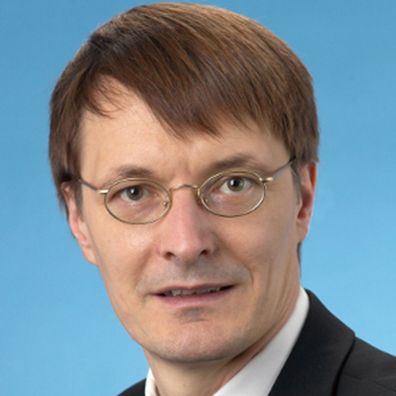Prof. Dr. Karl Lauterbach
Germany
Physician, Politician
DAAD Scholarship 1989–1992

Prof. Dr. Karl Lauterbach
© Deutscher Bundestag / Elke Schwalbach
How can we reform the German public health system in such a way that it remains socially fair? How can we succeed in keeping up with top-flight international medicine and ensure that advances in medicine benefit everyone? How can we improve support for those with high talent and potential? It is questions such as these that Karl Lauterbach deals with on a daily basis – and not only in academic theory, but also in political practice. He became known throughout Germany as adviser to former Federal Health Minister Ulla Schmidt and as a member of the Rürup Commission (on reforms in the German social security system).
We need more specialists in parliament.
– Karl Lauterbach
He has been a Member of the Bundestag for the SPD since the 2005 German election and deputy chairman of the SPD Parliamentary Party since the end of 2013. His candidacy for a seat in the Bundestag was a logical consequence of his experience, says Lauterbach: "We need more specialists in Parliament," he says. That does not necessarily have to mean more academics and researchers, but “in certain fields, specialists are able to achieve more, simply as a result of their expertise. Just think of Hermann Scheer and Ernst Ulrich von Weizsäcker in the field of energy policy.” If Parliament fails to increase the level of expertise among its members, Lauterbach is convinced that it then runs the risk of being gradually deprived of its power.
Some may find that the connection between medicine and economics takes some getting used to, but Lauterbach, born in the state of North Rhine-Westphalia in 1963, has no fears of such links. The world of numbers has always fascinated him, in fact, he almost ended up studying mathematics and economics. “I had already enrolled,” he recalls, “but then I decided at short notice to study medicine instead, because I wanted to do something of value to society.” Lauterbach initially studied medicine in Aachen, Düsseldorf and San Antonio, Texas. And that is how he got to know the US public health system in practice: “1988 was perhaps the decisive year in my life,” he says looking back.
He had gone to the United States because he thought highly of its top-rate research and the scientific standard of medicine there. However, he could not help noticing that many poor Americans were not benefiting at all from the high scientific standards, because they simply could not afford it: “Often we could only provide rough and ready treatment for seriously injured patients, because otherwise it would have been too expensive for them,” recounts Lauterbach. From that point on, his interest focused on prevention.
After receiving his doctorate, he studied health policy and management and epidemiology at the Harvard School of Public Health in Boston. “I couldn’t have financed these studies without the DAAD,” he emphasises. He has remained faithful to Harvard. He has been adjunct professor of Health Policy and Management at the Harvard School of Public Health since 2008. He has benefited in this context from his experience as director of the Institute of Health Economics and Clinical Epidemiology (IGKE) at the University of Cologne. From 1998 to 2005 he held the newly created chair of health economics, medicine and society, which was later renamed health economics and clinical epidemiology. As a member of the SPD Parliamentary Party’s Working Group on Health, of which he was also chairman for a time, Lauterbach’s role is mainly political: the vehement critic of any form of “two-tier health care” supports, among other things, the idea a health insurance system for all citizens based on the principle of solidarity.